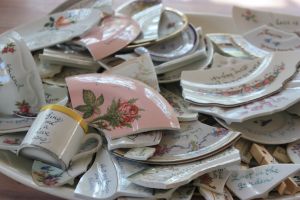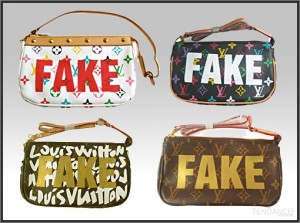This is the time of year when folks begin their search for gifts as the holidays are (as of this posting) 53 days away! This is also the time of year when it is more important than ever to try and snag some bargains. All my loyal readers know that I am a eBay Power Seller and also sell on Etsy and I wanted to share some tips and tricks with you all when you are shopping that can save you money and get you some really great items.
Lets start right off with the “Pick it Up or Put it Down” scenario we have all faced at some point. Today, shopping at thrift stores and flea markets is a very “in” and “hip” thing to do and we will focus our article on shopping for Vintage/Antique items and the best part is you can actually hold these item(s) in your hands and get a really good look at them as opposed to buying online where you are taking the sellers description and photos into consideration and not able to actually see and touch the item.
Pick Right Up:
- Designer & Name Brand Clothing
- Designer Accessories (Sunglasses, Handbags, Shoes, Belts)
- Limited Edition Items
- High-end Pottery and Dinner (Spode, Lenox, Herend, Roseville, Moorcroft, Vietri Deruta, Limoges, Prussia) items Made in England, France, Germany and Italy.
- Collectibles With Tags and Boxes
- Singed Items With Artist or Makers Marks
- Items in Good Over-All Condition
- Items That Are Strange, Unique, and Weird (these can be valuable & highly desired)
Put Right Down:
- Items That are Dirty, Broken or Have Damage
- Items That Have Been Mass-Produced
- Items That Are “Fakes” Replicas” and “Knockoffs and “Designer Inspired”
- Books That Are Previously Loved (Ripped Pages, Stains and Damage)
- Items That Are Primarily Made in China (Lots of Pottery and Dinnerware Fall Into This Category And Are Not Vintage or Antique and Very Common)
- Stuffed Animals (Although Very Collectible, Usually Not Clean And Damaged)
- Items That Still Retain Their Thrift Shop or Garage Sale Tags (Look These Over Well as There May be Something Wrong With the Items Because if it Didn’t Sell at The Garage Sale or Thrift Shop You Need to Wonder Why?)
TIP:
There are a lot of online sellers on eBay, Etsy, Rubylane, Tias, Bonanzle aka Bonanza, Shabby Lane Shops, Lollishops, Beautiful Shops and Shabby Cottage Shops and also Craigslist where you can actually contact the sellers and “make an offer” or have them create something unique and one-of-a-kind for you and actually buy at auction and totally score fabulous items at next to nothing!! Etsy and eBay allows buyers to view seller ratings so you can easily see what other buyers are saying about their experience with the seller and quality of merchandise etc… Other sites, you need to be a little cautious and Ask, Ask, Ask, when in doubt. Hope this article is helpful to you and Good Luck with all the many things that are starting to take place as we near the Holidays!!









